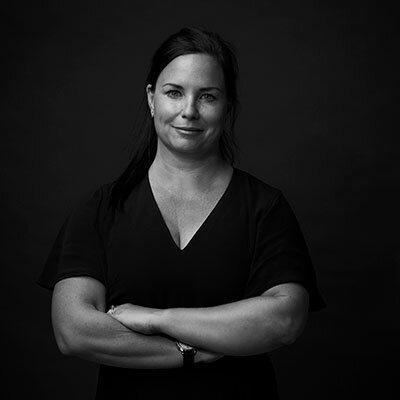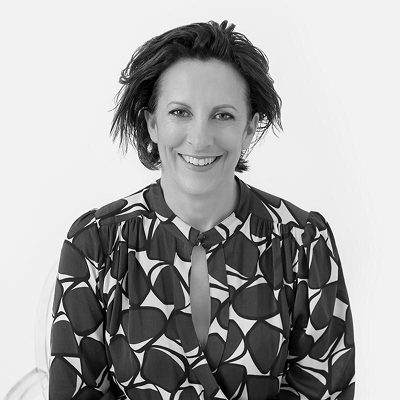
ASKING FOR A FRIEND
How do I share my mental health diagnosis?
ASKING FOR A FRIEND - QUESTION
Deciding whether to share your mental health diagnosis with your manager is one of the trickiest workplace conversations you'll face. This honest discussion tackles the real risks and rewards, from reading the room and understanding your motivations to asking for what you actually need (spoiler: it's probably not having all your projects taken away). Mental health expert Martine Beaumont shares practical strategies for taking control of these conversations, plus some sobering examples of when things go wrong. Essential guidance for anyone navigating mental health disclosure at work, because you deserve support, not stigma.
Deciding whether to share your mental health diagnosis with your manager is one of those workplace conversations that can feel like walking a tightrope in stilettos. It's deeply personal, potentially risky, and there's no one-size-fits-all answer – but there are ways to approach it thoughtfully.
This question was answered by Martine Beaumont – founder and CEO of Select Wellness and Select Counsellors, with over 30 years of experience as a psychotherapist, executive coach, and counsellor specialising in workplace wellbeing. Andy Wright served as host – Founder of Never Not Creative, Co-Chair of Mentally Healthy, and CEO of Streamtime.
Context is everything: reading the room
Before you even think about opening up, Martine emphasises the importance of context. "You've got to think about who you're sharing it with. Are they equipped? Are they on your side?" she explains. "In an ideal world we would like every leader to be able to listen and be empathic and to not judge. That's an ideal world. Sadly we don't live in an ideal world."
The harsh reality hit home when Martine shared a recent example involving her son, who experienced a severe reaction to antibiotics that resulted in suicidal behaviours. When he called his manager to explain, the response was devastating: "Oh well we'll have to take your promotion away now and you need to have a think about whether you're suited for working at this company."
This wasn't malicious leadership – it was a 26-year-old manager who wasn't equipped to handle the situation and was competing for the same role. The lesson? "You do need to think about context when you're deciding who am I going to share this with," Martine advises. "Share it with the person that you feel the most safest with and who you feel is the best equipped to share the nature of that vulnerability with."
Know your why: understanding your motivation
How do I share my mental health diagnosis with my manager starts with understanding why you want to share it in the first place. Martine suggests examining your motivation carefully: "What's behind why I'm sharing?"
Sometimes it's about protecting relationships. Martine recalls going through grief after losing three friends in close succession: "I wasn't my usual self and I didn't want them to interpret my behaviour as being about them, because often people do in the absence of not knowing." If you're grumpier than usual or seem distant, letting people know you're going through a difficult time can prevent them from personalising your behaviour.
Other times, your motivation might be practical – you need workplace accommodations. "If you've got chronic anxiety or if you've got a form of neurodiversity and the ways of working are not working for you and they're stopping you from being your best self at work and delivering your best work, well then that's a motivation," Martine explains.
Ask for what you actually need
Here's where many well-meaning managers get it spectacularly wrong. When someone shares they're struggling with mental health, the instinct is often to wrap them in cotton wool and remove all responsibilities. But as Martine points out, this can backfire: "Sometimes when people share that they've got anxiety or they're going through a difficult time, sometimes a leader will almost be over-compassionate and take projects away or lighten the load, but actually that might be the worst thing for that person."
Andy admits he's guilty of this: "I'm the first one to take everything away. We'll look after you. But I never thought about it – I'm the worst person." For someone whose identity is tied to their work, having projects removed can feel traumatic and trigger shame spirals.
The solution? Be specific about what support looks like for you. "Ask for what it is you want, for the support that you want," Martine advises. You might say: "I need you to just know where I'm at right now, but please, this doesn't mean that I'm not available for this project. I'm still happy with the workload." Or conversely: "I do need a lighter workload right now."
Taking control of the conversation
When you do decide to share your mental health diagnosis with your manager, approach it strategically. "You never go to them with just the problem. You go with the problem and the solution," Andy suggests. "Only you can know everything or be the expert on your own mental health."
This means coming prepared: "If you're able to take that and say, 'Look, this is what I have, but this is what I need, and I've had it before and you'll have seen that I can still do my work,' then you can take control of that conversation and get a good outcome hopefully."
The reality check
Let's be honest – sharing your mental health diagnosis with your manager is still daunting because there are real risks involved. "You could be penalised for that. You could be considered all sorts of things. So it is a scary thing," Martine acknowledges. "You have to be careful who you share it with."
The response you get also says a lot about your employer and whether you're in the right company. While there's less stigma around mental health than there used to be, discrimination still exists, and not every workplace has the structures in place to support you properly.
Finding your path forward
How do I share my mental health diagnosis with my manager isn't just about the conversation itself – it's about creating the conditions where you can thrive at work while managing your mental health. Sometimes that means finding the right person to confide in, sometimes it means being crystal clear about your needs, and sometimes it means recognising when a workplace isn't equipped to support you.
Remember, you're the expert on your own mental health. Trust your instincts about who to share with, be clear about what you need, and don't let anyone else's discomfort or lack of knowledge diminish your worth. Work is messy, mental health is complex, but you deserve a workplace where you can be honest about both without fear of punishment. Like a cat finding the perfect sunny spot for a nap, it might take some searching, but the right environment is out there.
our guests
Industry Leader

Jasmin Bedir
Innocean
Mental Health Expert

Martine Beaumont
Select Wellness
Host

